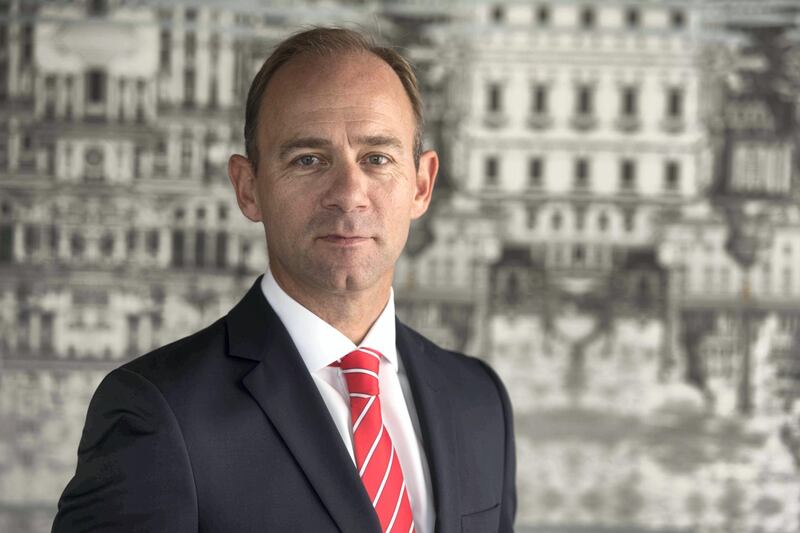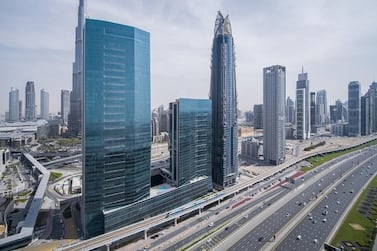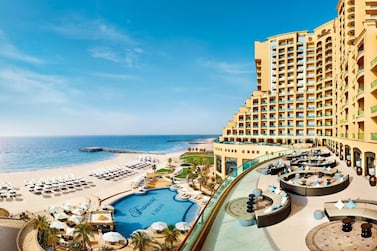French hospitality group Accor, one of the biggest hotels operator in the Middle East and Africa, expects the hospitality sector in Saudi Arabia and the UAE to rebound from a coronavirus-inflicted slowdown within 18 to 24 months once aviation operations in the region begin.
Pent-up demand for business and tourism in the Middle East will drive the recovery in the two Gulf states, Mark Willis, chief executive of Accor MEA told The National in an interview. The recovery is likely to be at par with the bounce back seen after the 2008-9 global financial crisis, aided by a pick-up in religious tourism in Saudi Arabia and economic activity related to the Expo 2020 in the UAE.
Other GCC markets, may take longer to come back to pre-coronavirus pandemic levels, Mr Willis said as it took these markets 36 months to fully recover after the financial crisis.
Across the region, “all destinations would not bounce back as quickly as the key destinations for the sure,” Mr Willis said. “From a broad prospective, 18 to 24 months to get back to where we were in 2019, I would say, is a realistic target, not least because places like Dubai have been so wonderfully resilient over the years.”
There are some encouraging signs of a revival in the aviation industry as airlines announce plans to gradually resume scheduled flights, he said. “It is about to restart.”
Despite the headwinds, Emirates, the world’s biggest long-haul airline, plans a gradual return to operations in the coming months. The airline resumed regular passenger flights to nine destinations – London, Frankfurt, Paris, Milan, Madrid, Chicago, Toronto, Sydney and Melbourne – from May 21.
The flights are the first regular, non-repatriation trips since March 24.
The pandemic has hit airlines, tourism and the hospitality sector particularly hard worldwide, forcing carriers to go from growth to survival mode within a matter of months.
The outbreak has led to a near-total shutdown of global travel leading to expectations that it will cut airlines’ passenger revenue by more than half, or about $314 billion (Dh1.15 trillion) this year, according to the International Air Transport Association. The global aviation industry body estimates about 25 million jobs in the sector are at risk and has called on governments to step up their support to carriers.
The hospitality sector was equally hit hard suffering near paralysis across the globe, as business and leisure travel came to a grinding halt amid lockdowns and movement restrictions to curb the spread of Covid-19.
The World Travel and Tourism Council said it expects about 75 million jobs will be lost in the sector worldwide as a result of the outbreak and the loss in tourism revenue would mean a $2.1 trillion hit to the global economy in 2020.
The speed of the revival of hospitality businesses will depend on how fast the aviation sector recovers and airlift operations within the region start. However, what can dramatically expedite the pace of a bounce back is the discovery of a vaccine to combat the pandemic.
“I think the two will go hand in hand. That [vaccine] will obviously change a lot of things, very, very quickly,” Mr Willis said.
“Once that’s on the table, consumer confidence, not just within our sector but in many sectors, will return quite quickly and from that you will see a … return to ‘normality’ very quickly,” he said.
Globally, Accor has closed two-thirds of its hotels – more than 3,000 of the group’s 5,000 properties worldwide.
It has furloughed or temporarily laid off 200,000 staff, about 75 per cent of its workforce. The company is also cancelling its planned €280 million (Dh1.1 billion) dividend payout against 2019 earnings because of the coronavirus crisis as it seeks to preserve cash.
Accor, whose brands includes Raffles, Fairmont, Sofitel, Ibis and Mercure among others, operates 350 hotels properties in the Middle East and Africa region. Of those, more than 130 are in the Middle East, including 64 in the UAE alone. The group has closed down 138 hotels and the decision to halt operations were made in consultation with owners of the properties and Accor’s business partners, Mr Willis said.
Accor has so far made about 800 of its 25,000 MEA employees redundant, with most of the job losses taking place in Africa.
“It has been a good collaboration with owners. We have seen very few redundancies even amid this absolute turmoil … making sure that we are able to rebound and bring people back online quickly, which is what we anticipate will come in the following months,” Mr Willis said.
He was unfazed by over-supply concerns in the regional markets.
“If you look at Dubai, for instance, and the UAE in general as a destination, there has been growth in the amount of inventory,” Mr Willis said. “However, in all realism, Dubai is sitting among the top-10 destinations globally, with regards to revpar [revenue per available room, a yardstick hotels performance]”.
“We still have 30 hotels in the UAE alone in the next 36 months. A number of those hotels are close to completion and they for sure will open,” Mr Willish said.
“While things look terrible today, and they do, the industry will recover.”









